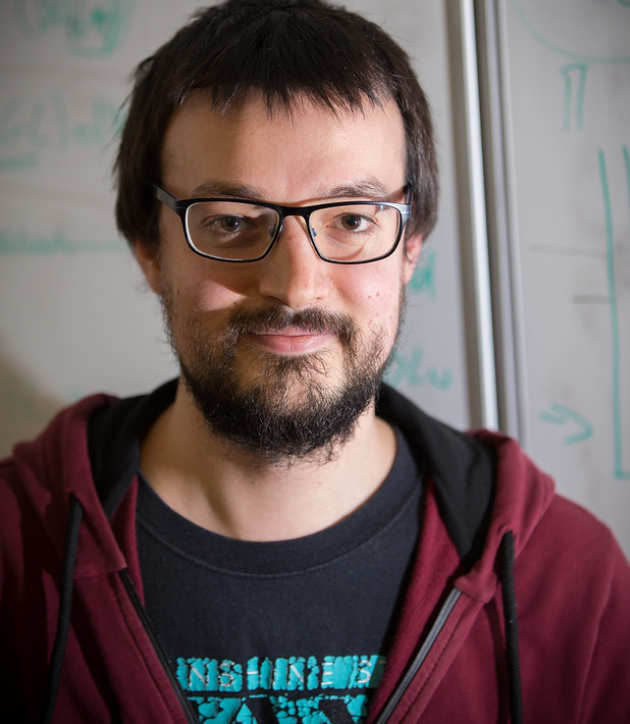 When you think of engineering – even within electricity and electronics – control engineering may not be obvious, but control engineers help us in every area of our lives.
When you think of engineering – even within electricity and electronics – control engineering may not be obvious, but control engineers help us in every area of our lives.
Control engineering involves a lot of very powerful maths that lets us model systems – not just electrical systems, but any systems: mechanical, fluid, biological, chemical – even financial. You can find control engineers working on racing cars, industrial chemical plants, weather forecasting, space-flight, stock markets.. anywhere.
In control
When he’s not climbing or hiking up mountains, or learning how to do refurbishment work in his own flat, Dr Giordano Scarciotti researches in Control, and teaches our second year electronics design project, and fourth year digital control systems. He’s also an undergraduate tutor, and is one of our friendly interviewers on UCAS interview days. He describes his research as: “Making something do what you want, when you are not really sure about what that something is.”
Engineering is a way of life. It is about looking around you and trying to make things better or in the best way, from finding the shortest way to get somewhere, to improving people’s lives."
“I was fascinated by computers. My family didn’t have one and I used any occasion to try one, at school for instance or at friends’ places. Since I can remember I wanted to be a Software Engineer, despite having no clue what a Software Engineer was — I think I just wanted to play videogames. I then became very passionate about mathematics and was inspired by the life of famous mathematicians and physicists — in particular Feynman.”
If he wasn’t an engineer, it’s probably no surprise that Giordano would want to be a mathematician. “But I actually would also like to be a philosopher, a doctor, a psychologist and a lawyer. And sometimes a plumber.”
Giordano says his major challenges and greatest achievements to date have been: “Publishing truly original results and methods and becoming an academic at Imperial College,” but he has also been a key figure in helping the 100+ staff and students in his research group, and some of their past students, come together as a community.
“I started inviting prominent speakers for group seminars, I put up a Twitter account for the group which blasts group news in the corridor, and I organised an “Alumni Day”. The aim of the Alumni day was to make us feel part of a community; to network and to celebrate the successes. It is truly inspiring to see the many and diverse achievements of people that once upon a time were students in our group.”